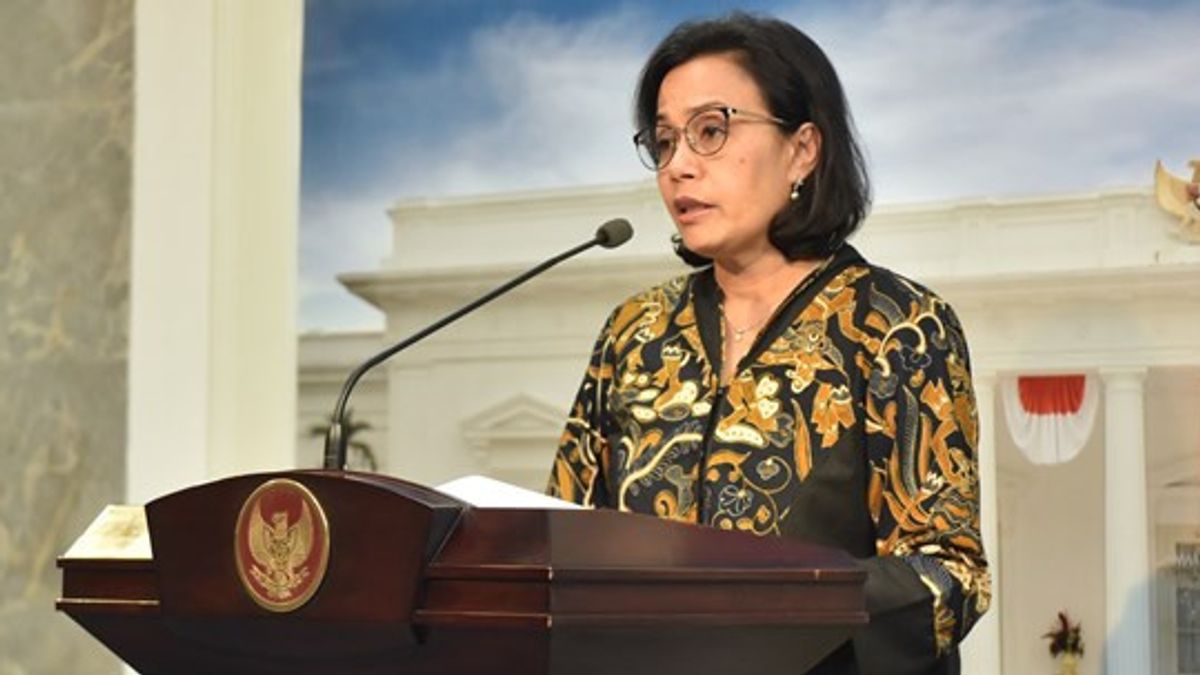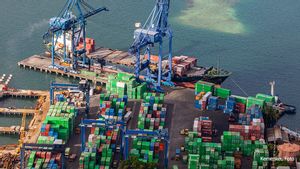JAKARTA - Minister of Finance Sri Mulyani Indrawati stated that the implementation of the Large-Scale Social Restriction (PSBB) policy in DKI Jakarta which was made by the Governor of DKI Jakarta Anies Baswedan , has made tax revenue depressed. However, when the emergency brake is relaxed, tax revenue will begin to recover.
The realization of tax revenue as of September 2020 was recorded at IDR 758.6 trillion. This figure contracted by 16.9 percent when compared to last year's Rp902.79 trillion.
The actual value of tax revenue is 62.6 percent of the target of Presidential Decree Number 72 of 2020 which is IDR 1,198.8 trillion.
"In September, there were economic indicators that were under pressure because the PSBB was carried out. We remain vigilant because whenever there is a PSBB, it is immediately visible in our tax pressure," he said, at the State Budget Conference for the September Realization Period Report, Monday, October 19.
As for the economic indicator mentioned by Sri Mulyani, domestic Value Added Tax (VAT) revenues. Last month, this type of tax experienced a net growth of 26.66 percent contraction, from the previous positive growth of 1.6 percent in August. This is due to a decrease in activity in the trade and construction services sector.
Then, the tax revenue from the trade sector in September was recorded as negative 33.97 percent. Previously, this sector's depreciation had reversed in August which was at the level of 22.27 percent from minus 27.73 percent in July. This internal pressure is due to a slowdown in economic activity during the tightening of PSBB in DKI Jakarta.
Meanwhile, in the construction and real estate sectors, the contraction even reached 48.59 percent last month, down significantly from the negative growth in July and August. Respectively at the level of 18.40 percent and 28.77 percent.
Sri Mulyani said that the reduction in taxation was closely related to the tightening of the PSBB. The decline in construction activities and property sales was one of the factors causing pressure on tax revenue from this sector.
Another indicator that illustrates the impact of PSBB tightening is mobility. The Ministry of Finance noted that people's movements last month contracted 1.87 percent compared to August.
The decrease in activity was seen in various locations of activity centers, such as recreation areas, pharmacies, safe and transportation. The reduction in movement occurs is part of the government's strategy to address health and economic improvement.
"Admittedly, by tightening the PSBB which aims to control the increase in the number of COVID-19 in Jakarta and its surroundings, it will contribute to the decline at the end of September," he said.
However, Sri Mulyani emphasized that although several economic indicators show a slowdown, the government is optimistic that third quarter growth will still show a recovery trend compared to the second quarter.
"This does not eliminate the positive trend in the third quarter," he said.
As is known, the government projects that economic growth in the third quarter will be at a level of minus 2.9 percent to minus one percent. Meanwhile, in the second quarter, the Indonesian economy experienced a deep contraction, namely 5.3 percent.
The English, Chinese, Japanese, Arabic, and French versions are automatically generated by the AI. So there may still be inaccuracies in translating, please always see Indonesian as our main language. (system supported by DigitalSiber.id)













